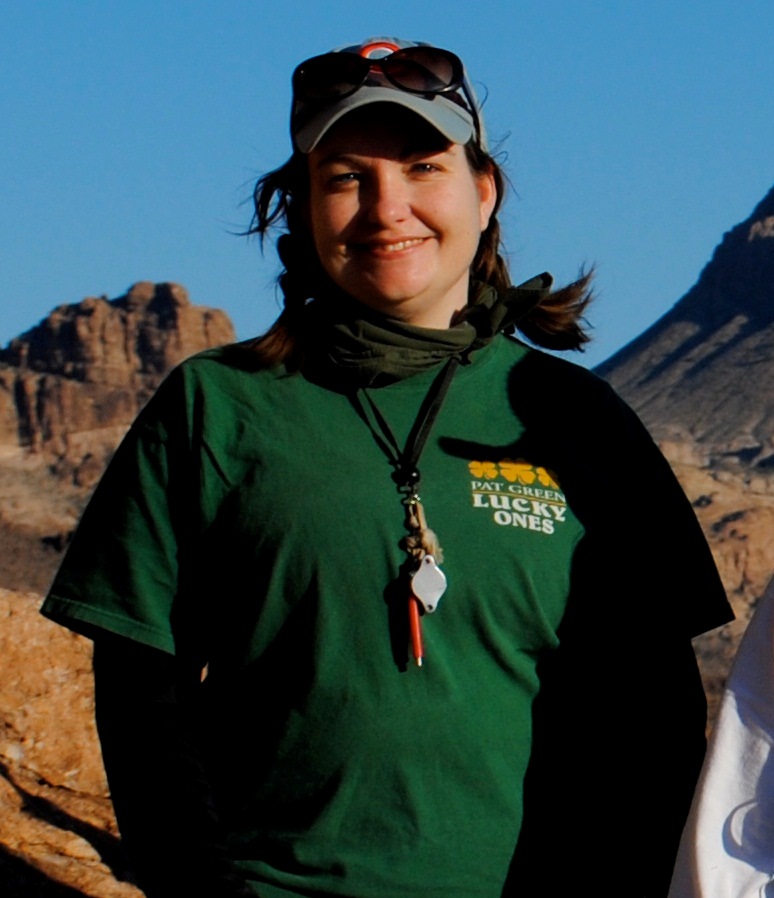Junior Faculty Teaching Fellow Spotlight: Lily Claiborne
Each month, the CFT Newsletter highlights the work of our Junior Faculty Teaching Fellows. This month, Lily Claiborne , Senior Lecturer in the department of Earth and Environmental Sciences, talks about her teaching philosophy and interests:
In a time when earth processes are moving to the forefront of global issues through climate change and natural resource management, it is important to me that I prepare future scientists and contribute to a scientifically literate citizenry. It’s good that this is my goal, since the courses that I currently teach are dominated by novices in the field (non-science majors, many of whom have significant science anxiety), but also contain students who will be Earth and Environmental Science majors. While these two groups bring very different levels of confidence, background knowledge and motivation to the classroom, my learning goals for them are the same. These goals revolve around building scientific skills which are transferable across disciplines (particularly making observations, asking questions, and figuring out how to answer those questions), developing an understanding of the Earth and its process, and guiding students toward a curiosity not just for scientific fact, but for how we know what we know.
 “The learning environment that evolves when people are taken out of the traditional classroom setting is incomparable, and I consider this one of my most valuable teaching tools. Field experiences inherently foster curiosity, enhance student-teacher and student-student relationships and communities, and build confidence in students regarding their knowledge and their skills through application.”
“The learning environment that evolves when people are taken out of the traditional classroom setting is incomparable, and I consider this one of my most valuable teaching tools. Field experiences inherently foster curiosity, enhance student-teacher and student-student relationships and communities, and build confidence in students regarding their knowledge and their skills through application.”
When I go into an introductory level classroom, first and foremost on my mind are convincing the students that geology is related to their lives and nurturing their inherent curiosity about the natural world. I often hear students in my classes claim, “I’m not a science person.” I don’t let them say it! In order to really engage them, I have to combat this fairly pervasive science anxiety and their own low expectations of themselves in science.
I ask students to engage with neuroscience research that supports the idea of a growth mindset to help them begin to believe that they can learn anything with work and practice. Scaffolding, student choice, and formative assessment also go a long way toward this end. However, they often still perceive a wall between themselves and “scientists.” To address this, I have them step into the shoes of scientists whenever I can. I present them with data and ask them what it means. They monitor live data online (stream water flow, earthquakes, volcanic activity), and report on it to their classmates or make predictions about future behavior of the system. I tell stories of scientists figuring things out, from the perspective of humans puzzling through something. Real science is messy but beautiful, and I find that revealing this brings the process to a level with which the students are much more comfortable.
Finally… to my favorite part. I’ll admit it. I am a geology teacher because I love field trips. The learning environment that evolves when people are taken out of the traditional classroom setting is incomparable, and I consider this one of my most valuable teaching tools. Field experiences inherently foster curiosity, enhance student-teacher and student-student relationships and communities, and build confidence in students regarding their knowledge and their skills through application. Whether due to the breakdown of traditional roles, the camaraderie that develops, or the spontaneity and shared experiential learning that is inherent to actually getting out and looking at the earth together, time in the field leads to cooperative and deep learning in a way impossible to generate in the classroom. I work to create field experiences that result in student groups who motivate each other to excel, and I would argue, as much as interest in the subject, often lead students to continue their studies in the field.

Leave a Response